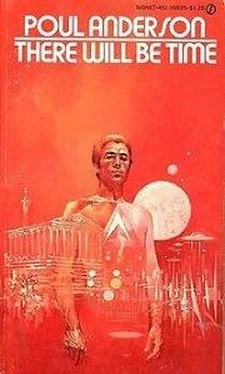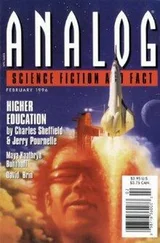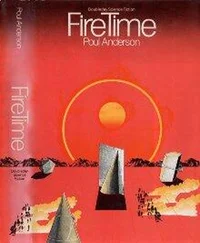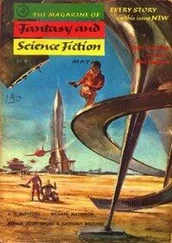Poul Anderson - There Will Be Time
Здесь есть возможность читать онлайн «Poul Anderson - There Will Be Time» весь текст электронной книги совершенно бесплатно (целиком полную версию без сокращений). В некоторых случаях можно слушать аудио, скачать через торрент в формате fb2 и присутствует краткое содержание. Год выпуска: 1972, Издательство: Doubleday, Жанр: Фантастика и фэнтези, на английском языке. Описание произведения, (предисловие) а так же отзывы посетителей доступны на портале библиотеки ЛибКат.
- Название:There Will Be Time
- Автор:
- Издательство:Doubleday
- Жанр:
- Год:1972
- ISBN:нет данных
- Рейтинг книги:5 / 5. Голосов: 1
-
Избранное:Добавить в избранное
- Отзывы:
-
Ваша оценка:
- 100
- 1
- 2
- 3
- 4
- 5
There Will Be Time: краткое содержание, описание и аннотация
Предлагаем к чтению аннотацию, описание, краткое содержание или предисловие (зависит от того, что написал сам автор книги «There Will Be Time»). Если вы не нашли необходимую информацию о книге — напишите в комментариях, мы постараемся отыскать её.
Nominated for Hugo Award for Best Novel in 1973.
There Will Be Time — читать онлайн бесплатно полную книгу (весь текст) целиком
Ниже представлен текст книги, разбитый по страницам. Система сохранения места последней прочитанной страницы, позволяет с удобством читать онлайн бесплатно книгу «There Will Be Time», без необходимости каждый раз заново искать на чём Вы остановились. Поставьте закладку, и сможете в любой момент перейти на страницу, на которой закончили чтение.
Интервал:
Закладка:
“What could I do? I apologized and came back with them.”
9
HE WAS GWEN a couple of days off, which he spent regaining his spirits in Leonce’s company. The period of his training and indoctrination had brought winter’s chances for old-fashioned sports outdoors and indoors. Thereafter he was assigned to reread Wallis’s history of the future, ponder it in the light of what he had witnessed, and discuss any questions with Waclaw Krasicki, who was the most scholarly of the garrison’s current directorate.
The Sachem admitted he was far from omniscient. But he had seen more than anyone else, on repeated expeditions with differing escorts. He had ranged more widely across Earth’s surface as well as through Earth’s duration than was feasible for subordinates, transport being as limited as it was. He had conducted interviews and interrogations, which others must not lest too many events of that sort arouse somebody’s suspicions.
He knew the Eyrie would be here, under his control, for the next two centuries. He had met himself then, who told him how satisfactorily Phase One of the plan had been carried out. At that date, the vastly augmented force he was shown must evacuate this stronghold. Nuclei of renascent civilization were spreading across all America, the Maurai were everywhere, a realm like his could no longer stay isolated nor maintain the pretense its leaders were nothing extraordinary.
A new base had been (would be) constructed uptime. He visited it, and found it totally unlike the old. Here were modern materials, sleek construction — mostly underground — housing advanced machinery, automation, a thermonuclear powerplant.
This was in the era of revolt against the Maurai. They had in the end failed to convert to their philosophy the gigantically various whole of mankind. Doubts, discontents, rebelliousness among their own people led to vacillation in foreign policy. One defiant nation redeveloped the fusion energy generator; and it made no attempt at secrecy. Old countries and alliances were disintegrating, new being born in turmoil.
“Always we need patience as well as boldness and briskness,” Wallis wrote. “We will have far more resources than we do in Phase One, and far more skill in employing them. That includes the use of time travel to multiply the size of a military force, each man doubling back again and again till the opposition is overwhelmed. But I am well aware this sort of thing has its limits and hazards. In no case can we hope to take over the whole world quickly. An empire which is to last thousands of years is bound to be slow in the building.”
Was that how Phase Two would end: with a planet once more pastoralized, in order that the overlordship of the Eyrie men, in the fabulous engines they would have developed, be unchallengeable? Wallis believed it. He believed Phase Three would consist of the benign remolding of that society by its new masters, the creation of a wholly new kind of man. Ranging very far uptime, he had glimpsed marvels he could not begin to describe.
But he seemed vague in this part of his book. Exact information was maddeningly hard to gather. He meant to continue doing so, though more and more by proxy. In general, he recognized, his lifespan would be spent on Phase One. The self he met at its end was an aged man.
“Let us be satisfied to be God’s agents of redemption,” he wrote. “However, those who wish may cherish a private hope. Is it not possible that at last science will find a way to make the old young again, to make the body immortal? And by then, I have no doubt, time travel will be understood, may even be commonplace. Will not that wonderful future return and seek us out, who brought it into being, and give us our reward?”
Havig’s mouth tightened. He thought: I’ve seen what happens when you try to straitjacket man into an ideology.
But later he thought: There is a lot of flexibility here. We could conceivably end more as teachers than masters.
And finally: I’ll stick around awhile, at least. The alternative to serving him seems to be to let my gift go for nothing, my life go down in futility.
Krasicki summoned him. It was a steely-cold day. Sunlight shattered into brilliance on icicles hanging from turrets. Havig shivered as he crossed the courtyard to the office.
Uniformed, Krasicki sat in a room as neat and functional as a cell. “Be seated,” he ordered. The chair was hard, and squeaked.
“Do you judge yourself ready for your work?” he asked.
A thrill went through Havig. His pulses hammered. “Y-yes. Anxious to start. I—” He straightened. “Yes.”
Krasicki shuffled some papers on his desk. “I have been watching your progress,” he said, “and considering how we might best employ you. That includes minimum risk to yourself. You have had a good deal of extratemporal experience on your own, I know, which makes you already valuable. But you’ve not hitherto been on a mission for us.” He offered a stiff little smile. “The idea which came to me springs from your special background.”
Havig somehow maintained a cool exterior.
“We must expand our capabilities, particularly recruiting,” Krasicki said. “Well, you’ve declared yourself reasonably fluent in the Greek koine. You’ve described a visit you made to Byzantine Constantinople. That seems like a strategic place from which to begin a systematic search through the medieval period.”
“Brilliant!” Havig cried, suddenly happy and excited. It rushed from him: “Center of civilization, everything flowed through the Golden Horn, and, and what we could do as traders—”
Krasicki lifted a palm. “Hold. Perhaps later, when we have more manpower, a wider network, perhaps then that will be worthwhile. But at present we’re too sharply limited in the man-years available to us. We cannot squander them. Never forget, we must complete Phase One by a definite date. No, Havig, what is necessary is a quicker and more direct approach.”
“What — ?”
“Given a large hoard of coin and treasure, we can finance ourselves in an era when this is currency. But you know yourself how cumbersome is the transportation of goods through time. Therefore we must acquire our capital on the … on the spot? … yes, on the spot. And, as I said, quickly.”
Havig’s suspicions exploded in dismay. “You can’t mean by robbery!”
“No, no, no.” Krasicki shook his head. “Think. Listen. A raid on a peaceful city, massive enough to reap a useful harvest, that would be dangerously conspicuous. Could get into the history books, and that could wreck our cover. Besides, it would be dangerous in itself, too. Our men would have small numbers, not overly well supplied with firearms. They would not have powered vehicles. The Byzantine army and police were usually large and well-disciplined. No, I don’t propose madness.”
“What, then?”
“Taking advantage of chaos, in order to remove what would otherwise be stolen by merciless invaders for no good purpose.”
Havig stared.
“In 1204,” his superior went on, “Constantinople was captured by the armies of the Fourth Crusade. They plundered it from end to end; what remained was a broken shell.” He waved an arm. “Why should we not take a share? It’s lost to the owners anyway.” He peered at the other’s face before adding:
“And, to be sure, we arrange compensation, give them protection from slaughter and rapine, help them rebuild their lives.”
“Judas priest!” Havig choked. “A hijacking!”
Having briefed himself in the Eyrie’s large microtape library, having had a costume made and similar details taken care of, he embarked.
An aircraft deposited him near the twenty-first-century ruins of Istanbul and took off again into the air as quickly as he into the past. A lot of radioactivity lingered in these ashes. He hadn’t yet revealed the fact of his chronolog and must find his target by the tedious process of counting sun-traverses, adding an estimate of days missed, making an initial emergence, and zeroing in by trial and error.
Читать дальшеИнтервал:
Закладка:
Похожие книги на «There Will Be Time»
Представляем Вашему вниманию похожие книги на «There Will Be Time» списком для выбора. Мы отобрали схожую по названию и смыслу литературу в надежде предоставить читателям больше вариантов отыскать новые, интересные, ещё непрочитанные произведения.
Обсуждение, отзывы о книге «There Will Be Time» и просто собственные мнения читателей. Оставьте ваши комментарии, напишите, что Вы думаете о произведении, его смысле или главных героях. Укажите что конкретно понравилось, а что нет, и почему Вы так считаете.












